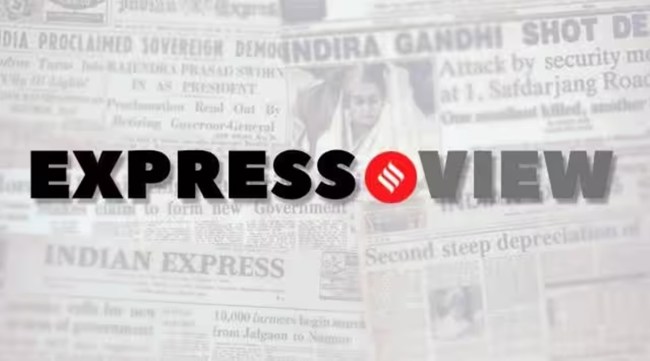Opinion Express View: Anti-cheating law – Youth needs an enabling environment
Bill to curb cheating in public service exams is welcome. But more needs to be done to acknowledge and address a chronic breakdown
 An investigation by this newspaper found more than 40 instances of paper leaks in 15 states over the last five years.
An investigation by this newspaper found more than 40 instances of paper leaks in 15 states over the last five years. On Tuesday, Lok Sabha passed the Public Examinations (Prevention of Unfair Means) Bill, 2024 in Parliament. The legislation is an attempt to address a disturbing state of affairs. Examination malpractices tar the credibility of the public recruitment system. An investigation by this newspaper found more than 40 instances of paper leaks in 15 states over the last five years.
The cascading effects touched the lives of at least 1.4 crore applicants for about 1 lakh posts. Paper leaks lead to either the cancellation or postponement of exams, adversely affecting the prospects of the aspirants — in seven cases investigated by this newspaper, candidates are still awaiting a re-examination. Some states do have anti-cheating laws, but they haven’t proved to be effective deterrents. The Centre’s Bill is intended as a “model draft”, which aims to introduce “greater transparency and fairness ”.
This is a much-needed step — accountability for paper leaks must be fixed. Much more, however, needs to be done to make sure that unfair practices have no place in the government recruitment system.
In recent years, several states have witnessed public outrage over the disruption of examination schedules. This issue was among the talking points in the recent state assembly elections in Rajasthan, Telangana and Madhya Pradesh. In Rajasthan, the BJP alleged that members of the then-ruling Congress were complicit in the paper leaks.
The Congress hurled similar accusations against Telangana’s BRS government. However, alleviating the anxieties of the young public service aspirants has never gone beyond trading charges, it is yet to become a major election issue — say, like the demands of caste groups. The political class’s shortage of ideas on this issue is disturbing in a country that proclaims its intention to reap its demographic dividend in the next quarter century.
Even after more than 30 years of liberalisation, a large section of the country’s young population, especially those from the middle and lower-middle classes, seek the safety of a government job. Regular salaries and social security benefits enhance the appeal of these jobs and multiple pay commissions have reduced the gap between private and public sector salaries. In large parts of the country, working for the government is seen as the most assured route of upward mobility.
The number of aspirants for such jobs seems to have grown after the economic crises of 2008 and 2013 and the pandemic-induced disruption. At the same time, however, the government employment pie has been shrinking across states. This demand-supply gap creates fertile grounds for the job mafia and exam fixers.
Comparatively, examinations conducted for the elite All India Services, IITs and medical institutions have been less prone to such controversies or scams. Introducing the new Bill, Minister of State for Personnel, Public Grievances and Pensions Jitender Singh said that “the government is aware of the concerns of youth regarding irregularity in examinations”. The Lok Sabha has passed the bill without much debate. The discussions in the Upper House will hopefully suggest a way forward on framing broader and durable solutions to a longstanding problem.




